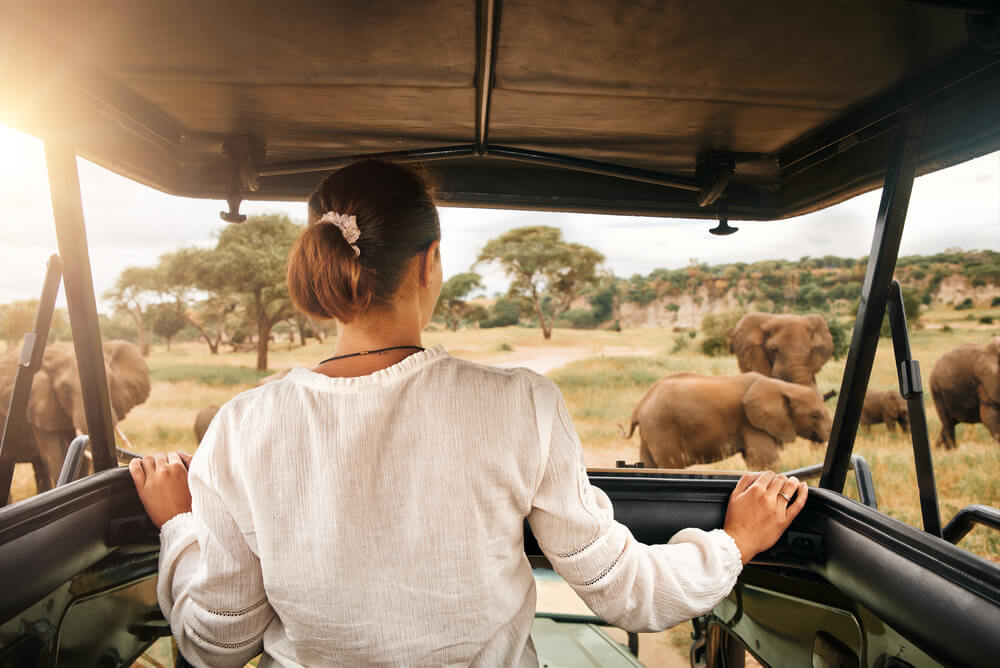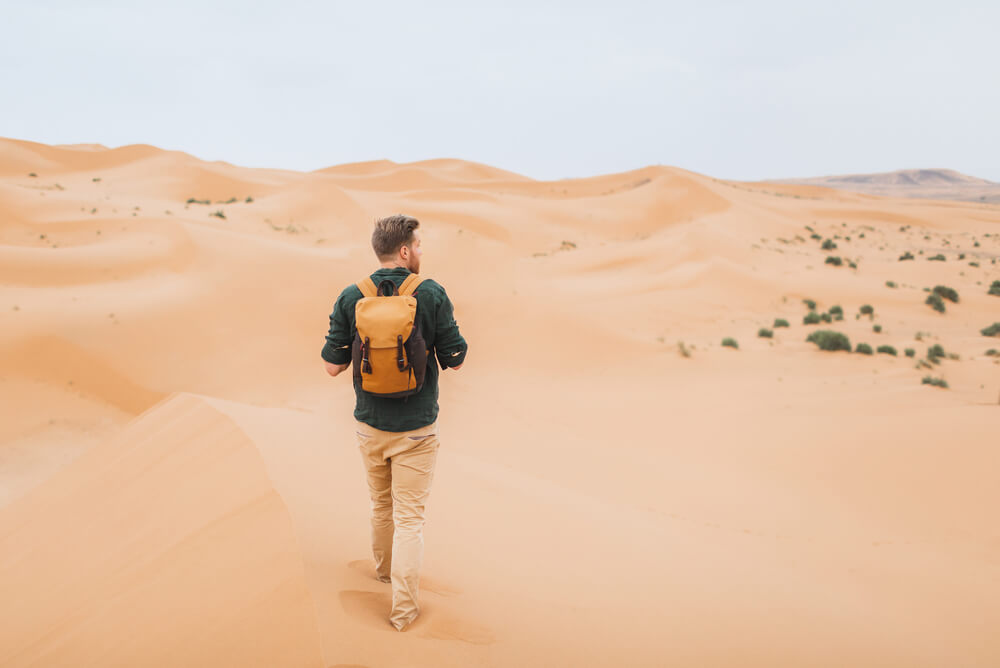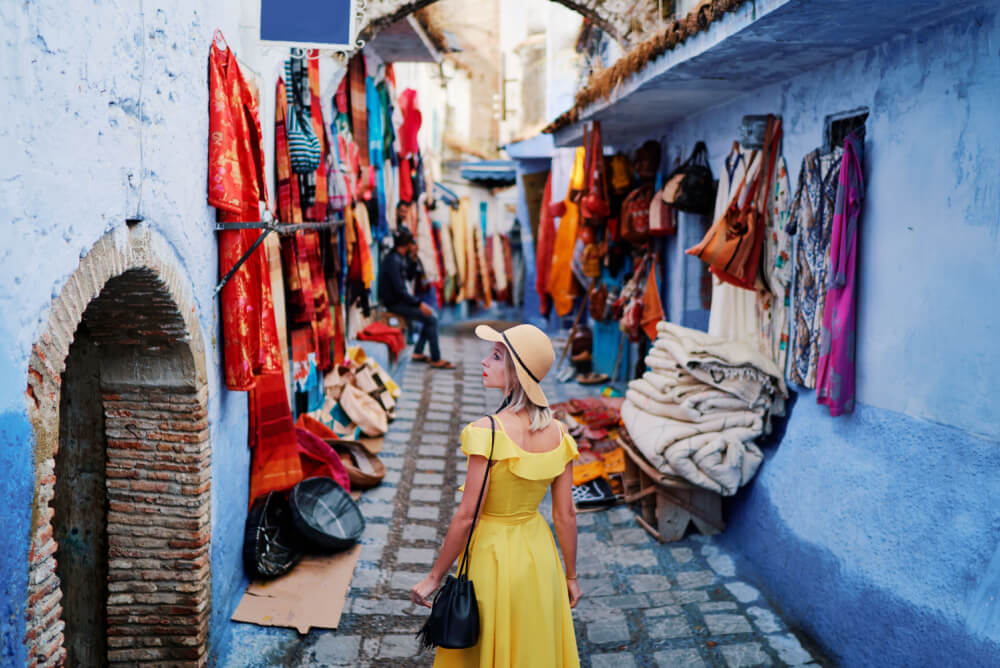Africa is a mighty continent filled with safaris, dense jungles and vast deserts – a perfect place for an epic adventure. For all the memorable sights to see in Africa, there are also plenty of dangers. But you don’t need to let them ruin your trip, or your bank balance, if you have travel insurance.
Ultimately, the decision to purchase travel insurance is up to you and your individual circumstances; however, considering travel insurance is particularly important when planning to visit Africa. While Africa is a beautiful and exciting continent to travel to, many countries come with an increased degree of risk, making finding the right travel insurance for your trip crucial.
To understand a policy’s inclusions and limits, you should read the Product Disclosure Statement (PDS) before purchasing your travel insurance plan.

Before travelling to Africa, it’s a good idea to purchase a travel insurance policy that can cover you against disruptions to your trip. Most comprehensive policies include cover for cancellations and travel delays and many also include cover for additional travel expenses.
Due to the high amount of crime and civil unrest in a number of African countries, travel insurance cover with a high level of medical coverage should be a priority. While quality medical facilities are available in some parts of Africa – most commonly in major African cities such as Cape Town, South Africa – the Department of Foreign Affairs and Trade (DFAT) notes that other parts may not have adequate medical care available.1 This means that you could be far from aid if you become sick or injured.
If you frequently travel to the continent, you might also want to consider purchasing an annual multi-trip policy, so you’re covered for multiple trips to Africa and other international locations over a year (up to the maximum trip length), rather than a single-trip policy.
Medical cover can protect you financially if you experience a medical emergency. Australia doesn’t have a Reciprocal Health Care Agreement with any African countries, so any medical bills you incur will be paid out-of-pocket.
However, most travel insurance providers offer emergency assistance along with cover for hospital bills and medical treatment. With emergency assistance, your insurer will help ensure you receive the medical care you need, even by sending out their own team or arranging for a medical evacuation or repatriation back home to Australia if required.
Adventure awaits those who journey to Africa, from national parks and game reserves to white water rafting. However, not all sports and activities are covered by a standard travel insurance policy, and those that are vary between insurance providers. You can purchase cover for additional activities with an adventure sports add-on.
It’s important to know what is and isn’t covered, as any incidents related to an excluded activity could mean your insurer might not pay for any insurance claims if you require medical assistance.
Assaults, mugging, carjacking and other crimes are common in Africa, with some regions having a higher risk than others according to DFAT’s Smartraveller website.2 While you should take action to protect yourself and your belongings, travel insurance can cover the cost of repairing or replacing stolen and damaged belongings.
Your travel insurance may be able to reimburse your luggage, personal belongings, valuables, credit cards and travel documents up to certain limits depending on your level of cover.
Many countries in Africa may have political conflict, crime or even just normal travel delays (like bad weather) that can disrupt travel plans. If parts or all of your trip is interrupted in some way, your international travel insurance policy may reimburse you for missed accommodation, flights or tours with trip cancellation and delay cover.
For a continent as large as Africa, this depends on where you wish to travel. Countries as such Seychelles, Zambia or South Africa are considered fairly safe to travel to, but there are also countries you should avoid. Check for travel advice on Smartraveller before booking a trip and taking out travel insurance cover, as many travel insurers won’t provide any cover for countries with a high degree of risk and a ‘Do Not Travel’ warning.
There’s also a risk of insect-borne diseases such as malaria, as well as food- or water-borne diseases such as cholera, hepatitis and typhoid. It’s recommended you speak to your medical practitioner about any vaccinations you may need and general advice for avoiding sickness overseas.
Travel insurance companies won’t cover everything. While the exact exclusions will differ based on a policy’s PDS, the following events are generally not covered:

While Africa can be a great holiday destination, it’s important to take precautions to stay safe against crime. Consider the following:
To avoid accidentally offending the locals and learn more about the people you’ll meet, it’s best to brush up on local manners, customs and laws. For example, in countries like Egypt, conservative dress and behaviour are expected.3
Same-sex couples in particular will want to check if the nation they are visiting has any laws that could make being romantic with your partner problematic. Even if there are no specific laws against same-sex activity or relationships, Smartraveller recommends understanding your destination’s customs and be wary of disclosing your LGBTQ+ identity to strangers.4
Not all tour operators will follow proper safety procedures.5 This may include adventure activities like wildlife tours, dolphin diving, ziplining, white water rafting and more. Be sure to ask the operators about safety requirements and gear and choose another operator if you don’t feel safety standards are being met. You should also only participate in tours or activities with licensed tour and operator providers.


Before you experience the beauty, joy and heart of Africa, we make getting travel insurance a piece of cake. We compare a number of travel insurance providers available in Australia.
To get a quote on travel insurance policies, simply use our online comparison tool to tell us a few details about your trip and you’ll be weighing up providers side-by-side in minutes, all for free! Our service makes it easy to compare available policies by price, coverage, policy excesses and other features.
Simples!
Want a closer look at Africa? Why not check out our page on travel insurance for South Africa for more information.
1 Smartraveller, Department of Foreign Affairs and Trade, Australian Government. South Africa – Medical care. Last updated November 2022. Accessed January 2023.
2 Smartraveller, Department of Foreign Affairs and Trade, Australian Government. Niger – Safety. Last updated July 2022. Accessed January 2023.
3 Smartraveller, Department of Foreign Affairs and Trade, Australian Government. Egypt – Local customs. Last updated December 2022. Accessed January 2023.
4 Smartraveller, Department of Foreign Affairs and Trade, Australian Government. Advice for LGBTI travellers. Last updated May 2022. Accessed January 2023.
5 Smartraveller, Department of Foreign Affairs and Trade, Australian Government. Zimbabwe – Tours and adventure activities. Last updated November 2022. Accessed January 2023.